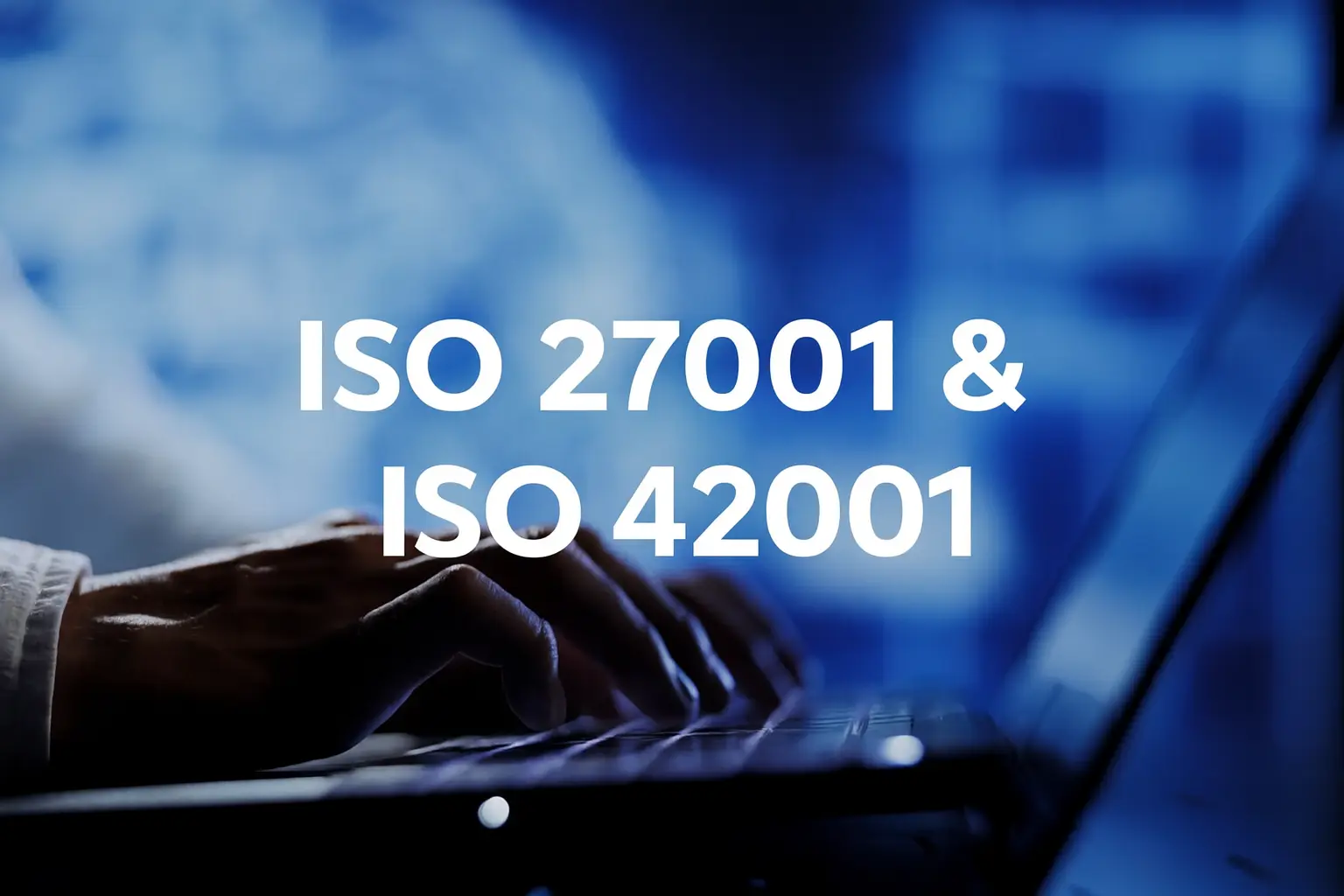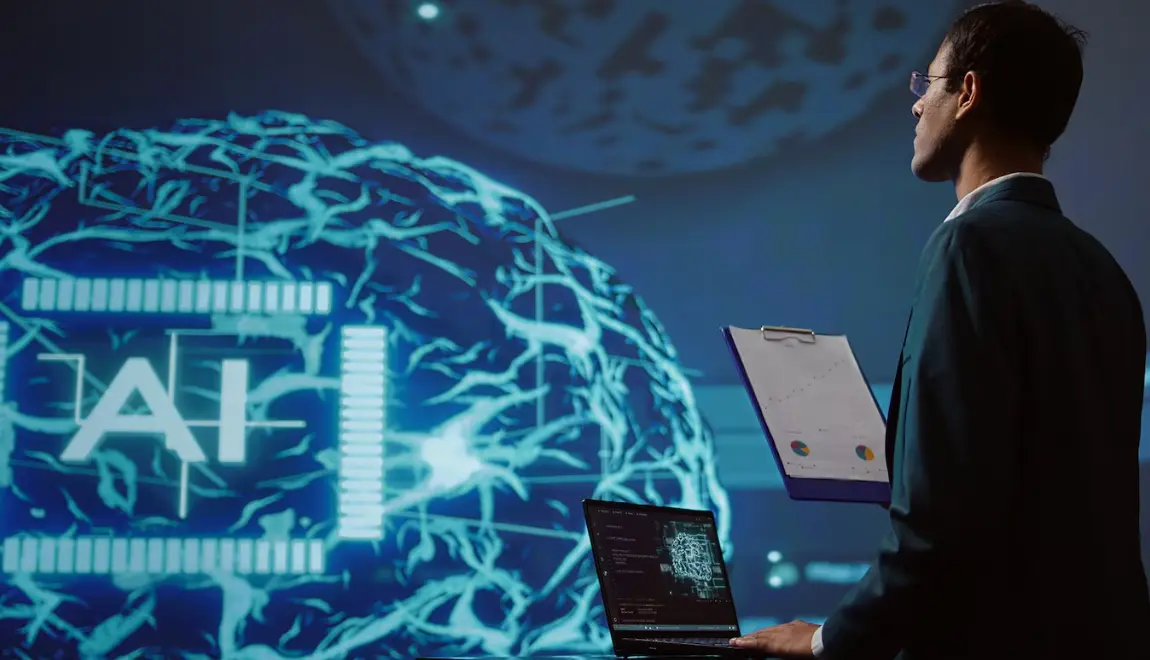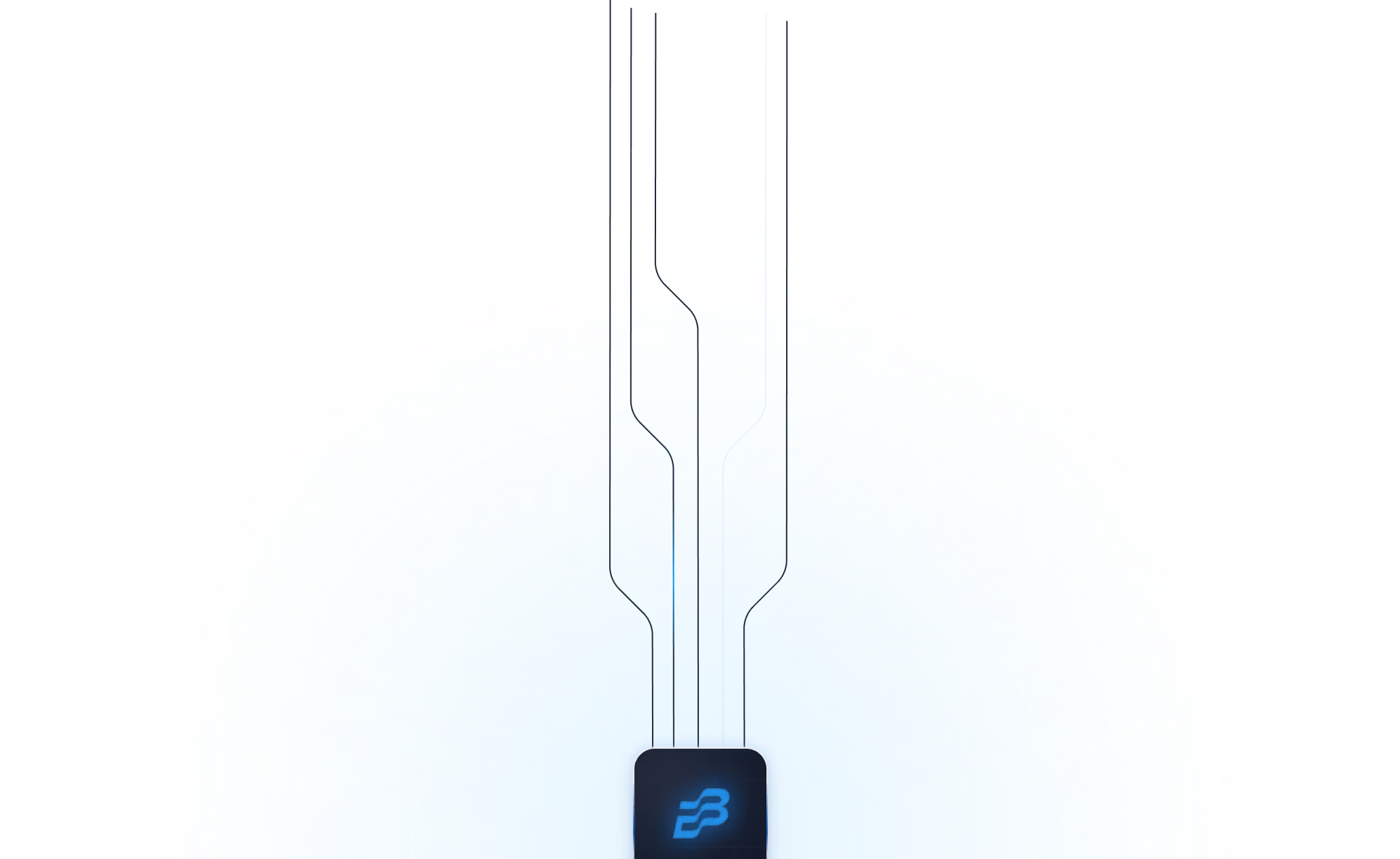
Working on ISO 27001? It’s Time to Add ISO 42001 to Your Strategic Plan

Artificial intelligence is no longer limited to experimental tools. It has rapidly become integrated into everyday business operations. Organizations are building AI-powered products, embedding AI systems into existing solutions, and deploying tools like ChatGPT across their workforce.
This rapid adoption has ushered in growing expectations from customers, regulators, and partners to demonstrate AI risk management in a structured and trustworthy way.
For companies that are already ISO 27001 certified and operating an Information Security Management System (ISMS), the next strategic step is extending that foundation with ISO 42001, the first global standard for an AI Management System (AIMS). Together, ISO 27001 and ISO 42001 create a powerful, integrated approach to managing information security and AI-specific risks.
ISO 27001 vs ISO 42001: A Natural Fit
ISO 27001 is the global benchmark for information security management systems (ISMS). It sets out a comprehensive risk management framework to protect sensitive data, ensure confidentiality, and enforce security controls like access control and network security.
Need ISO 27001 Certification? Learn about our ISO 27001 Consulting Services.
Introduced in 2023, ISO/IEC 42001 defines requirements for an Artificial Intelligence Management System (AIMS). It emphasizes governance, accountability, and AI risk management practices tailored to emerging technologies and ethical considerations.
Instead of tackling these frameworks separately, organizations can reduce costs and streamline oversight by building an Integrated Management System (IMS). This unified approach supports continuous improvement, simplifies certification audits, and creates a comprehensive framework that addresses both information security risks and AI-specific risks.
Areas of Overlap Between ISO 27001 and ISO 42001
With similar structures and methodologies, ISO management system standards share these common elements:
- Governance & Policy Development – Establish leadership commitment, clear accountability, and enforce ethical AI policies.
- Risk Assessments – Identify threats, vulnerabilities, and potential business or regulatory outcomes.
- Internal Audits – Ensure continuous improvement of both information security and AI management practices.
- Change Management & Secure SDLC – Embed risk mitigation and compliance controls into system design.
- Third-Party Risk Management – Extend governance to your vendor ecosystem and AI supply chains.
- Certification Processes – Provide structured, external validation of your compliance process.
Read the ISO 27001 Implementation Guide and learn how to strengthen your ISMS before expanding it to include AI governance
While ISO 27001 covers a broad range of information security management controls, ISO 42001 zeroes in on AI-specific considerations such as ethical AI practices, responsible use, and AI governance.
Exclusive elements of ISO 42001 include:
- AI System Impact Assessments – Evaluate societal, ethical, and operational impacts of AI systems.
- AI-Specific Policies – Address transparency, accountability, explainability, and human-in-the-loop requirements.
- 38 Additional Controls – Expand oversight into bias mitigation, ethical considerations, and AI-specific risk assessment.
Explore our ISO 42001 Consulting Services to see how we help businesses build AI management systems tailored to their risk environment.
The Business Case for an Integrated Management System
Adding ISO 42001 to your existing ISO 27001 program is more than a compliance exercise—it’s a competitive advantage.
An integrated management system allows you to:
- Build Trust – Show regulators, customers, and partners that you proactively manage AI and information security risks.
- Accelerate AI Adoption – Give leadership confidence that safeguards and governance structures are in place.
- Simplify Audits – Reduce the time, effort, and cost of certification audits by combining frameworks.
- Stay Ahead of Regulations – Position your organization to comply with the evolving EU AI Act and other AI regulations.
How to Add ISO 42001 to Your ISO 27001 Program
If your business is already ISO 27001-certified, extending to ISO 42001 can follow a structured, manageable process:
1) Conduct an ISO 42001 Gap Analysis
Measure existing information security controls against ISO 42001 requirements.
2) Close the Gaps
Update policies, implement AI-specific controls, and document AI impact assessments.
3) Integrate Your Management System
Expand your ISMS into a comprehensive Integrated Management System (IMS) that covers both security and AI.
4) Work with Your Auditor
Plan for an integrated certification audit to validate both standards in one process.
Stop Overspending – Combine ISO 27001 and ISO 42001
AI is no longer a “nice-to-have” tool, but a critical driver of business operations. Yet, without proper governance, it introduces new risks to sensitive data, reputation, and regulatory compliance.
By expanding ISO 27001 certification with ISO 42001, organizations can mitigate AI-specific risks, ensure ethical AI use, and demonstrate compliance with international standards.
At BD Emerson, we help organizations integrate ISO 27001 and ISO 42001 into a unified compliance process. Our team aligns governance, risk, and compliance strategies with your business goals, so you can focus on innovation while managing risks effectively.
Know Your AI Governance Needs Work but Unsure of How to Start?
Schedule a consultation with our compliance team today and strengthen your AI governance and security posture.











